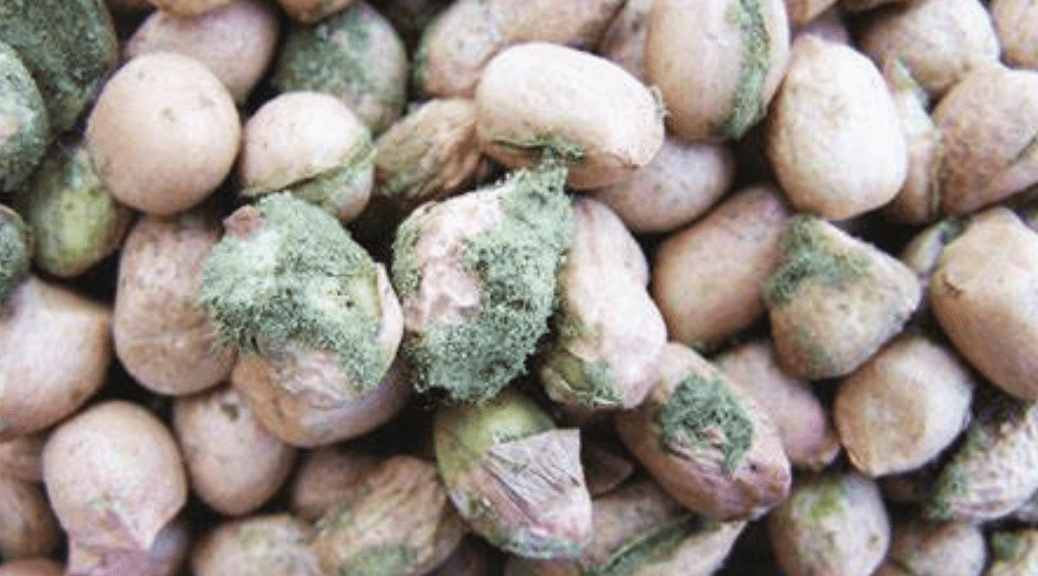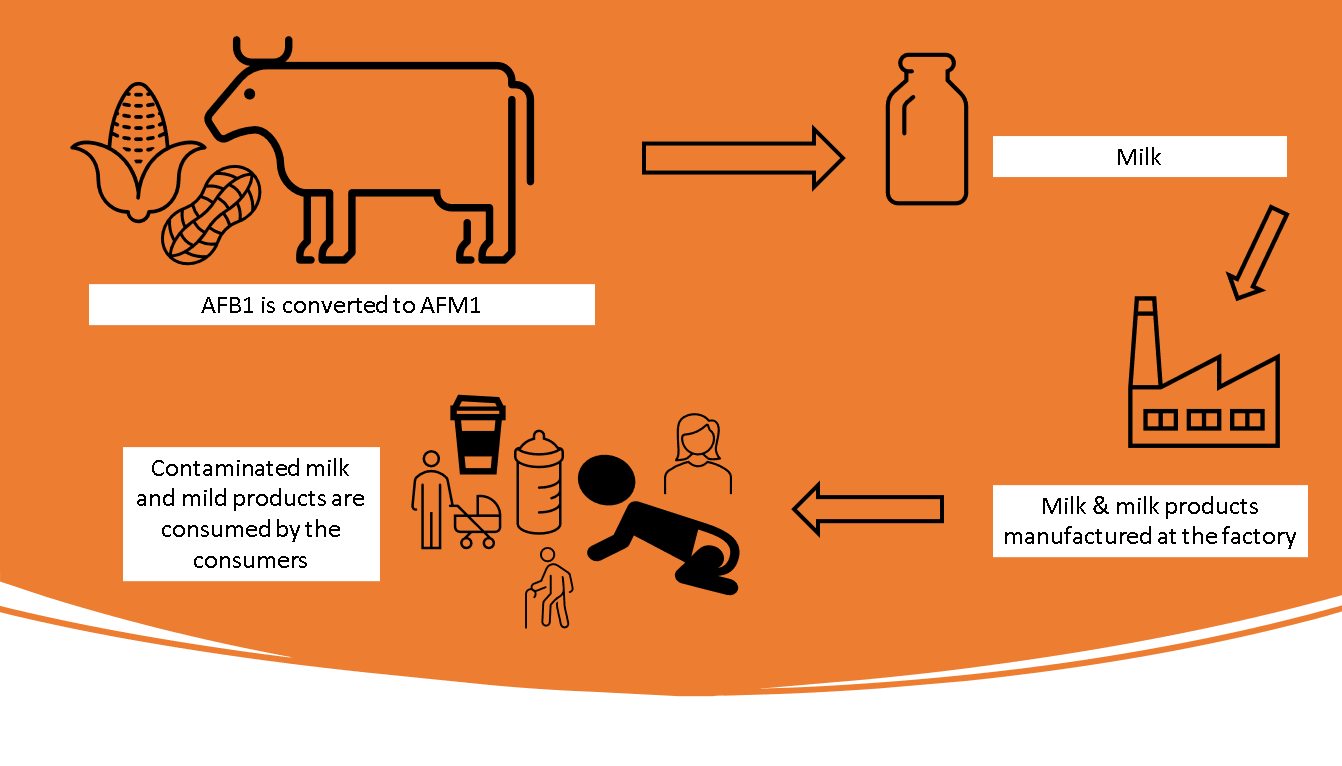Aflatoxin: A toxin you should mind

In 2019, a national survey by the Food Safety and Standards Authority of India (FSSAI) detected Aflatoxin M1 (AFM1) in milk samples. It was found that the highest rates of AFM1 contamination were present in Delhi, Tamil Nadu, and Kerala. Milk is a staple commodity for all sections of society in India, and detection of Aflatoxin M1 in milk is a grave concern. Considering this, in 2020, FSSAI released Gazette Norms on Contaminants, Toxins Including Aflatoxin M1 and fixed the limit of Aflatoxin M1 at 0.5 µg/kg for milk (liquid), 6 µg/kg for skimmed milk powder and 4 µg/kg for whole milk powder. But what is Aflatoxin, and why is it so dangerous? Let’s try to understand here.
Richa Pande
Aflatoxins are mycotoxins, i.e., toxins produced by certain fungi found in agricultural crops like maize and groundnuts. Some other food products commonly contaminated by aflatoxin are tree nuts such as pistachio and brazil nuts, cottonseed, copra, rice, maize, wheat, sorghum, pulses, figs, etc. oilseed cakes. Unrefined vegetable oil made from contaminated seeds or nuts usually contains aflatoxin. However, aflatoxin is destroyed in the refining process so that refined oils are safe.
The reason why aflatoxins are considered so harmful to human health is that they are carcinogenic. Their consumption is also associated with complications like hepatotoxicity, immunotoxicity, and teratogenicity. It can also lead to growth failure in children. Their consumption can cause stunting in children. Some studies often suggest that their consumption can lead to congenital disabilities in children. Aflatoxins can also decrease resistance to infectious agents, including grave diseases like tuberculosis & HIV. Large doses of aflatoxins can also lead to acute poisoning that can be life-threatening
Types of Aflatoxins
According to the World Health Organization (WHO), several types of aflatoxin (14 or more) occur in nature, but out of these four– Aflatoxins B1, B2, G1 and G2 are hazardous to humans and animals as they have been found in major food crops. Also, most human exposure comes from contaminated nuts, grains and products derived from them. Aflatoxin M1 (AFM1) discussed above, is a product of Aflatoxin B1 (AFB1) metabolism. If the cattle feed is laced with this Aflatoxin B1, it could be converted in to Aflatoxin M1 and could probably be detected in the milk. It’s surprising to note that humans may also be exposed to this aflatoxin through breast milk, especially in areas where the poorest quality grain is used for animal feed.

What can you do as a consumer to prevent and reduce the consumption of foods contaminated with Aflatoxin?
- Carefully inspect whole grains and nuts. If you see mould, discard the food. Note that the moulds do not just grow on the surface but penetrate deep into the food. It might be visible only on the surface, but the whole food product could have been contaminated.
- Buy nuts as fresh as possible. Buy reputable nuts and nut butter brands – aflatoxin moulds are not entirely killed by processing or roasting, so it is possible that they can be present in cashew butter, peanut butter, etc. Check their packaging methods.
- Store nuts, including groundnuts in refrigerators at home. Storing nuts at a low temperature (refrigeration) have been found to have reduced aflatoxin levels for 3-6 months.
- Assure that foods are stored adequately. Moisture promotes the growth of mould in foods.
Ensure that you have a diverse diet that is rich in vitamins, minerals and antioxidants.
Related
Decoding Cyber Coverage in India: Your Ultimate Guide
In today's technology-driven landscape where digitalization is ubiquitous, companies confront an escalating threat landscape in the form of...
Navigating Insurance Options: Comprehensive Coverage for Diabetics in India
As the prevalence of diabetes continues to rise steadily in India, individuals grappling with this chronic condition encounter myriad challenges,...
Understanding International Travel Insurance
International travel insurance serves as a financial product crafted to shield travellers from unforeseen events and expenses while journeying...


